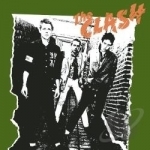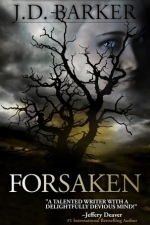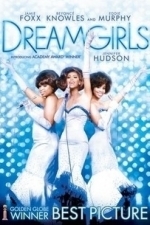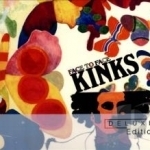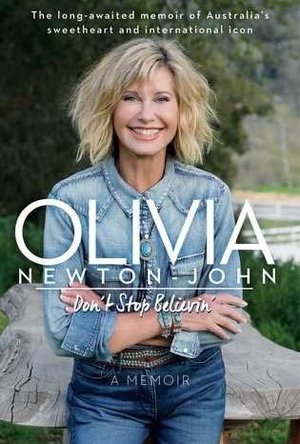
Holiday Destination by Nadine Shah
Album Watch
For most of us, 2016 was a tumultuous and ugly year - one steeped in political chaos and an air of...
rock pop
Bobby Gillespie recommended Clash by The Clash in Music (curated)
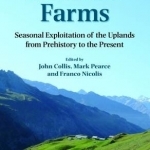
Summer Farms: Seasonal Exploitation of the Uplands from Prehistory to the Present
John Collis, Mark Pearce and Franco Nicolis
Book
Summer farms occur throughout the world where there are rich pastures that can only be utilised for...

VehiCal - Car Expense Management
Business and Utilities
App
VehiCal makes it easy to record and manage vehicle mileage and expenses for personal and business...
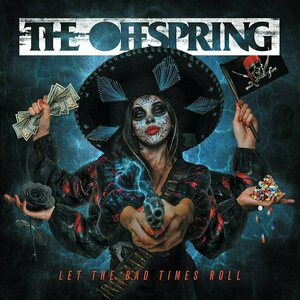
Let The Bad Times Rolls by The Offspring
Album
The Offspring is a punk rock band from Garden Grove, California, formed in 1984. The band's current...
Lyndsey Gollogly (2893 KP) rated Forsaken (Shadow Cove Saga #1) in Books
Sep 22, 2019
Inspired by Actual Events
Excerpt from the Journal of Clayton Stone - 1692
She was examined today without torture at Shadow Cove township on the charge of witchcraft. She said she was wholly innocent of the crime and has never in life renounced God. I watched as they brought her out. A poor, sickly thing, worn by her time behind the walls of her prison. Her bared feet and hands bound in leather, her clothing tattered to that of ruin. Despite such condition, her head was held high, her eyes meeting those of her accusers. Upon being stripped and examined, on her right side is found a bluish mark, much like a clover leaf; it was thrice pricked therein but she felt no pain and no blood flowed from the wound. She still refuses to provide her name so we remain unable to search baptismal records, nor has her family stepped forward to claim her as their own. We have no reason to believe she is anything but an orphaned child. I find myself unable to look at her directly in the moments preceding her trial. She is watching me though; with eyes of the deepest blue, she is watching me.
Thad McAlister, Rise of the Witch
When horror author Thad McAlister began his latest novel, a tale rooted in the witch trials of centuries past, the words flowed effortlessly. The story poured forth, filling page after page with the most frightening character ever to crawl from his imagination. It was his greatest work, one that would guarantee him a position among the legends of the craft.
But was it really fiction?
He inadvertently opened a door, one that would soon jeopardize the lives of his family.
She wants to come back.
At home, his wife struggles to keep their family alive. Secretly wondering if she caused it all...a deal she made long ago. A deal with the Forsaken.
<strong>Strange but gripping</strong>
Ok so it was so good. The right amount of spooky and scarlet that made you keep turning the pages. The little pixie creatures reminded me of something Del Toro has used in his films. Highly recommend.
Not much more to really say it's one of those books you just need to read!
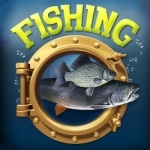
Fishing Deluxe - Best Fishing Times Calendar
Weather and Lifestyle
App
SALE 30% OFF! The app gives you the best fishing times for your location, so you can plan fishing...
Gareth von Kallenbach (980 KP) rated Dreamgirls (2006) in Movies
Aug 14, 2019
In the film Dreamgirls, Director/Screenwriter Bill Condon brings the book and musical of the same name to the big screen with style and energy, and tells an inspired and entertaining story.
Though the names have been changed, it does not take much effort to discover that many parts in the film are indeed based upon actual people, and situations, which only ads to the story and characters, as though seeing a work of fiction, there is some factual basis to what is being shown.
Beyonce’ Knowles stars as Deena Jones, who is the lead singer in a female trio who hope to get noticed at a local talent show. While the group fails to win, they do attract the attention of Curtis Taylor Jr. (Jaime Foxx), a local manager who runs a car dealership during the day.
Curtis takes the girls under his management and soon begins a relationship with Effie, (Jennifer Hudson), as the band begins to get notice. Curtis uses bribes to get the girls played on white radio stations and soon has a hit on his hands and forms his own record label in order for his talent.
While on tour with R&B legend James Thunder Early (Eddie Murphy), the decision is made to make Deena sing lead over Effie which leads to tensions in the band despite their growing success.
What follows is a tale full of love, loss, success, failure, redemption, and laughs as the dynamic tale of the girls and their career is told over the passage of several years.
While much has been made of the singing of Beyonce’ and Jennifer Hudson, Eddie Murphy was clearly the star of the film as he brought a dynamic energy to the film whenever he was on screen. Murphy amazingly blended comedy and music as he performed his own material as well as generated sympathy as the troubled singer, who is trying to hold onto fleeting fame amongst changing times and gives and Oscar worthy performance.
The songs of the film are very well done, though at times, some of them dragged on to long for my taste, and at times hampered the narrative portion of the film.
That being said, Dreamgirls is one of the best musical to hit the screen and if for no reason other than Murphy’s performance is must see film.
Britt Daniel recommended Face to Face by The Kinks in Music (curated)
Heather Cranmer (2721 KP) rated Don't Stop Believin' in Books
May 28, 2019
Olivia Newton-John rose to fame in the United States as the character of Sandy in the movie Grease. She also had a bunch of hit songs and records afterwards. Olivia's autobiography does mention her rise to fame although I felt as if there wasn't enough time spent on her rise to fame. She does write about her time with Grease and other films as well as recording her songs throughout the book. I felt the movies and songs were written about well.
We get a taste of her life as a child in England and Australia, although I felt she didn't discuss her pre-fame life too much. I would have liked to read more about her childhood instead of just being rushed into when she started performing. I know Olivia Newton-John likes to keep her private life out of the limelight, but when writing an autobiography, it's important to give the reader a little more details than what Don't Stop Believin' gave us.
There was so much name dropping throughout this book! While I understand that famous people know other famous people, sometimes I felt as if Olivia was dropping names just for show instead of because it fit the story. You have a lot of famous friends. We get it!
Another thing that annoyed me about the book was how some parts seemed like an advertisement for her Olivia Newton-John Cancer Wellness and Research Centre as well as for her husband, John Easterling's, herb company. I know she's done so much for her cancer center, (which I give her mad props for), but she goes on and on about how great and lovely of a place it was especially after she was an inpatient there. Of course the staff would treat her better when her name is on the building! There's more than one chapter devoted to how great the place is. I'm sure it is lovely, but I felt like I didn't need to a chapter (and more) about how great it is. As for her husband's herb company, she went on and on towards the end of the book how his herbs really helped her out which is great, but again, does the reader really need the specifics and being told over and over again how helpful it was?
The major thing that annoyed me was how preachy Don't Stop Believin' was in a lot of chapters. In fact, it made me feel guilty sometimes that I rely on modern medicine. Olivia writes how she'd rather take the natural approach to fighting off viruses and diseases, and I get that because I don't like to take medicine needlessly either, but sometimes, it's the best thing. However, I just felt that Olivia was berating those who choose to go the medicinal route. I felt like she was implying that natural remedies work better than modern medicine. This can be dangerous especially if someone gets off their medicines they need to survive to try the natural approach. People should always discuss any changes of medication with their doctors.
To me, Don't Stop Believin' writes like someone who's always been privileged and sheltered throughout their life. A lot of it feels like Olivia Newton-John is out of touch with reality and like she's living in La-La Land. I just found it hard to relate to her throughout the book. Yes, she has gone through some hardships such as deaths in the family, her cancer diagnoses, and her ex-boyfriend disappearing, but for the most part, her autobiography is just too sunshine and rainbows for me to truly relate.
Don't Stop Believin' flows beautifully though, and the writing is done very well, so it has that going for it. I did find myself enjoying the book most of the time when Olivia wasn't been preachy or advertising something. There were some interesting tidbits about her life throughout the book.
Trigger warnings include some profanity use, death, cancer, drinking, and smoking.
Overall, Don't Stop Believin' isn't a bad book, quite the contrary. It's just a bit too hippie dippy for me to have truly enjoyed it to its fullest. I did find the book interesting though despite some flaws. I would recommend Don't Stop Believin' by Olivia Newton-John especially to those who have been diagnosed with cancer as this book does come with a bunch of positivity when it comes to dealing with cancer.
